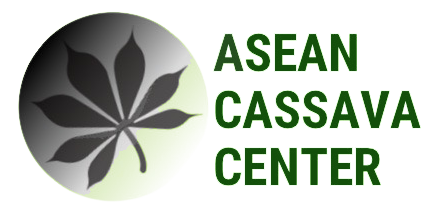Advancing Diagnostic Technology for Cassava Mosaic Disease Management in Thailand

Cassava, a crucial crop in Thailand, plays a pivotal role in the country's economy as the leading exporter of cassava products globally. However, the emergence of Cassava Mosaic Disease (CMD) has posed a significant threat to this industry, resulting in drastic reductions in yield, compromised quality, and scarcity of disease-free planting materials. To address this pressing issue, BIOTEC-NSTDA has spearheaded the development of diagnostic technology aimed at combating CMD and safeguarding Thailand's cassava sector.
CMD, caused by the Sri Lankan cassava mosaic virus (SLCMV) transmitted by whiteflies, has rapidly spread across Thailand since its first appearance in 2018. The disease manifests in various symptoms such as leaf curling, mosaic patterns, yellowing, and stunted growth, ultimately leading to substantial yield losses ranging from 30% to 80%. Moreover, the scarcity of disease-free planting materials exacerbates the situation, posing immense challenges to farmers and threatening the nation's agricultural economy.
BIOTEC's efforts in developing diagnostic tests for SLCMV represent a significant breakthrough in CMD management. Two main diagnostic tools have been devised: the enzyme-linked immunosorbent assay (ELISA) and the immunochromatographic (ICG) strip test. The ELISA method, characterized by its cost-effectiveness and accuracy, enables simultaneous testing of 96 samples, providing greater sensitivity compared to commercial tests at a lower cost. This approach is conducive to implementation by government agencies, starch factories, and universities, facilitating widespread adoption and support for cassava growers.
On the other hand, the ICG strip test offers a rapid and user-friendly detection tool suitable for on-site testing. With high sensitivity and accuracy, this method does not require specialized equipment or expertise, allowing farmers to promptly identify SLCMV-infected plants within 15 minutes, thereby facilitating timely interventions and disease management strategies.
Moreover, through collaborative efforts between public and private entities, these diagnostic tests are being disseminated to key cassava-growing regions in Thailand. Training programs on farm management practices accompany the distribution of these tests, empowering farmers with knowledge and resources to combat CMD effectively. Additionally, ELISA laboratories have been established across various institutions, including Sanguan Wongse Industries, FD Green (Thailand), Asia Modified Starch, and educational institutions like Rajamangala University of Technology Isan and Mahidol University, Kanchanaburi Campus.
This concerted approach underscores Thailand's commitment to technological innovation and sustainability in agriculture. By harnessing the power of diagnostic technology, the nation aims to fortify its agricultural resilience, mitigate economic losses, and align with the principles of the Bio-Circular-Green Economy (BCG) model, thus ensuring a sustainable future for its cassava industry.
Source: https://www.nstda.or.th/thaibioeconomy/195-diagnostic-technology-offers-solutions-for-combating-cassava-mosaic-disease.html
